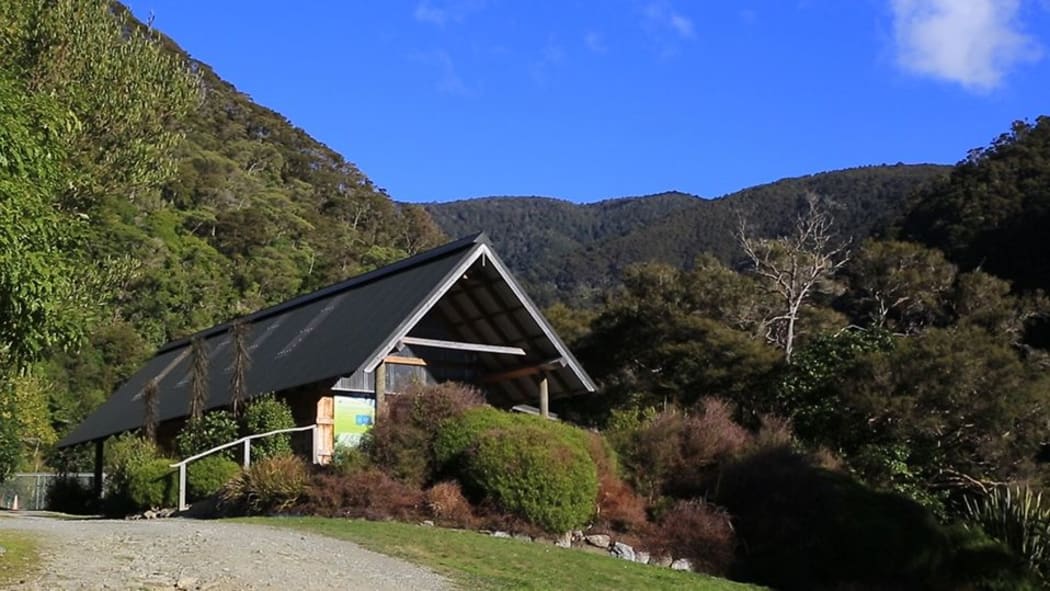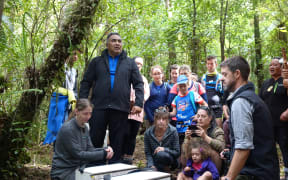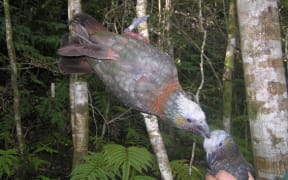A legal challenge to a planned poison drop at a bird sanctuary in Nelson could affect plans to eradicate pests all around the country.

Brook Waimarama Sanctuary near Nelson, where the poison drop was proposed Photo: SUPPLIED
A community group has gone to the High Court in Wellington in an effort to stop the proposed aerial drop of brodifacoum at the Brook Waimarama Sanctuary in Nelson.
The proposal would lead to 26.5 tonnes of brodifacoum poison baits being dropped over an area which includes forest land and a riverbed in an effort to rid the sanctuary of a range of pests, including stoats and weasels.
If the challenge is successful it could force similar poison drops in other parts of the country to be stopped.
The aerial drop of poison in Nelson was authorised under exemptions signed off by the government this year to Resource Management Act regulations.
The exemptions allow the dropping of poison so long as the type of poison being used, the boundaries of each discharge area and the reason for the poison's use were explained to the relevant regional council.
Local communities do not need to be notified by their regional council that such poison drops are taking place.
The Brook Valley Community Group said it was inappropriate to allow the Brook Waimarama Sanctuary to carry out the aerial poison drop next to a residential and recreational area.
Its lawyer Sue Grey told the High Court yesterday residents walked their dogs in the area around the sanctuary and feared the animals could inadvertently eat the bait.
She said the poison drop could also affect those hunting in the area.
"There's no dispute that birds in the sanctuary can come and go at their free will so potentially eating poison in the sanctuary, flying out over the fence and dying outside where they may be eaten by a wild pig or whatever."
Ms Grey said the exemptions to the Act were unlawful and that Environment Minister Nick Smith was thinking only of the government's predator-free strategy when he implemented them.
"And in doing so he ignored all of the other considerations that he should've taken into account under the Resource Management Act which included the effect on people and communities, so all of those amenity-type values that are affecting the very people of this community."
Te Whare O Te Kaitiaki Ngahere, an environmental group which opposes the use of 1080 poison, is represented at the case.
Its lawyer Allan Tobeck said the exemptions were a 'one size fits all', and those doing a poison drop were not required to do any monitoring before or afterwards.
"They can't determine any success or otherwise of the operation," he said.
"From a logical perspective, how can they they justify doing another operation - in a year, two, three, four, five, years' time - if they can't assess what they've done previously.
The sanctuary's lawyer Brian Nathan said his client believed it had more or less the same obligations relating to poison drops as existed before the exemptions came into force, including giving 48 hours' notice and putting up warning signs.
He said a failure to abide by the codes of practice for poison drops could result in prosecution under the health and safety legislation.
"It would be absolutely common for the prosecution to be relying heavily on the failure of a defendant to comply with a code of practice," he said.
"Failure to comply will be an almost insurmountable hurdle to the successful defence of a prosecution."






